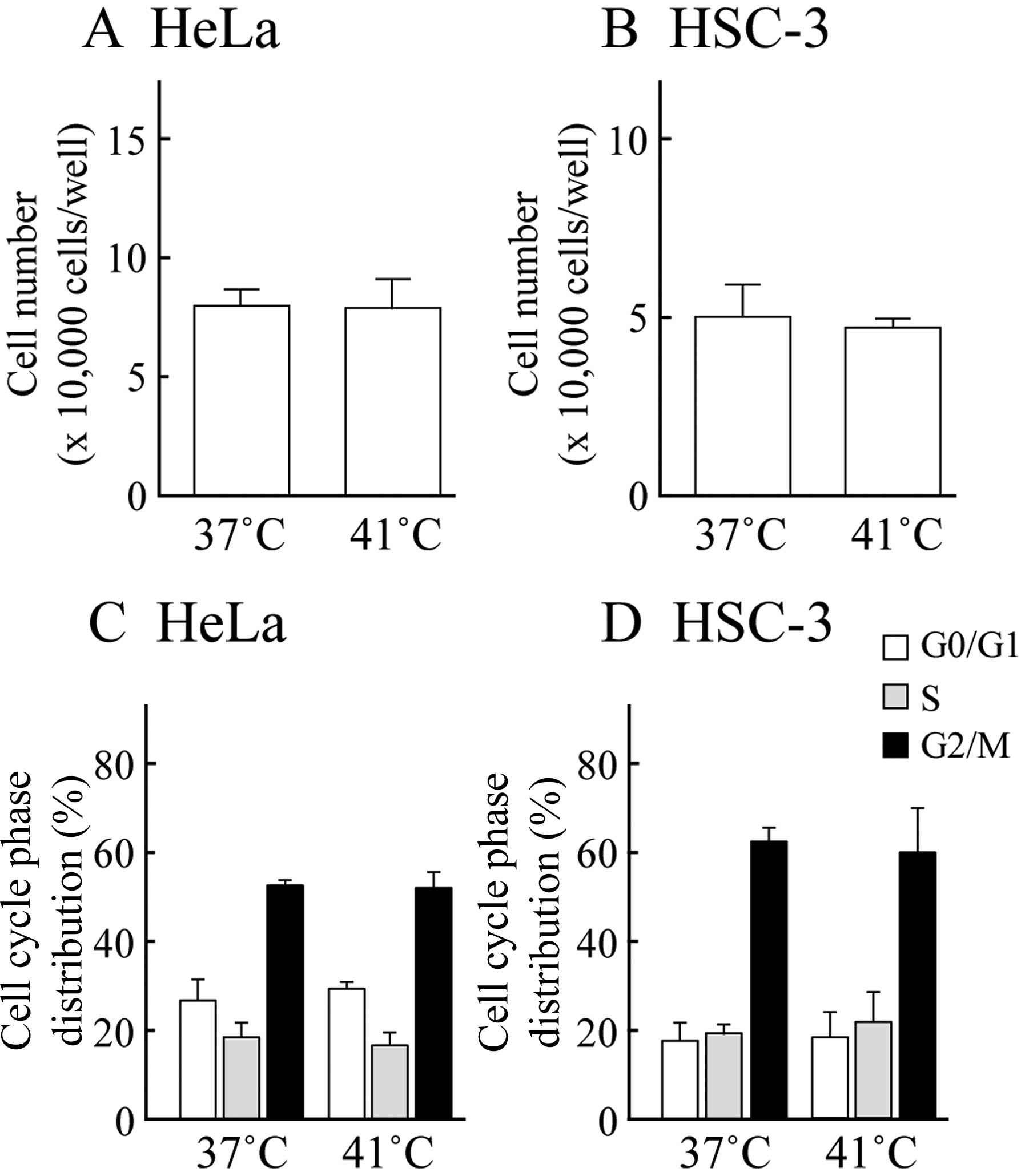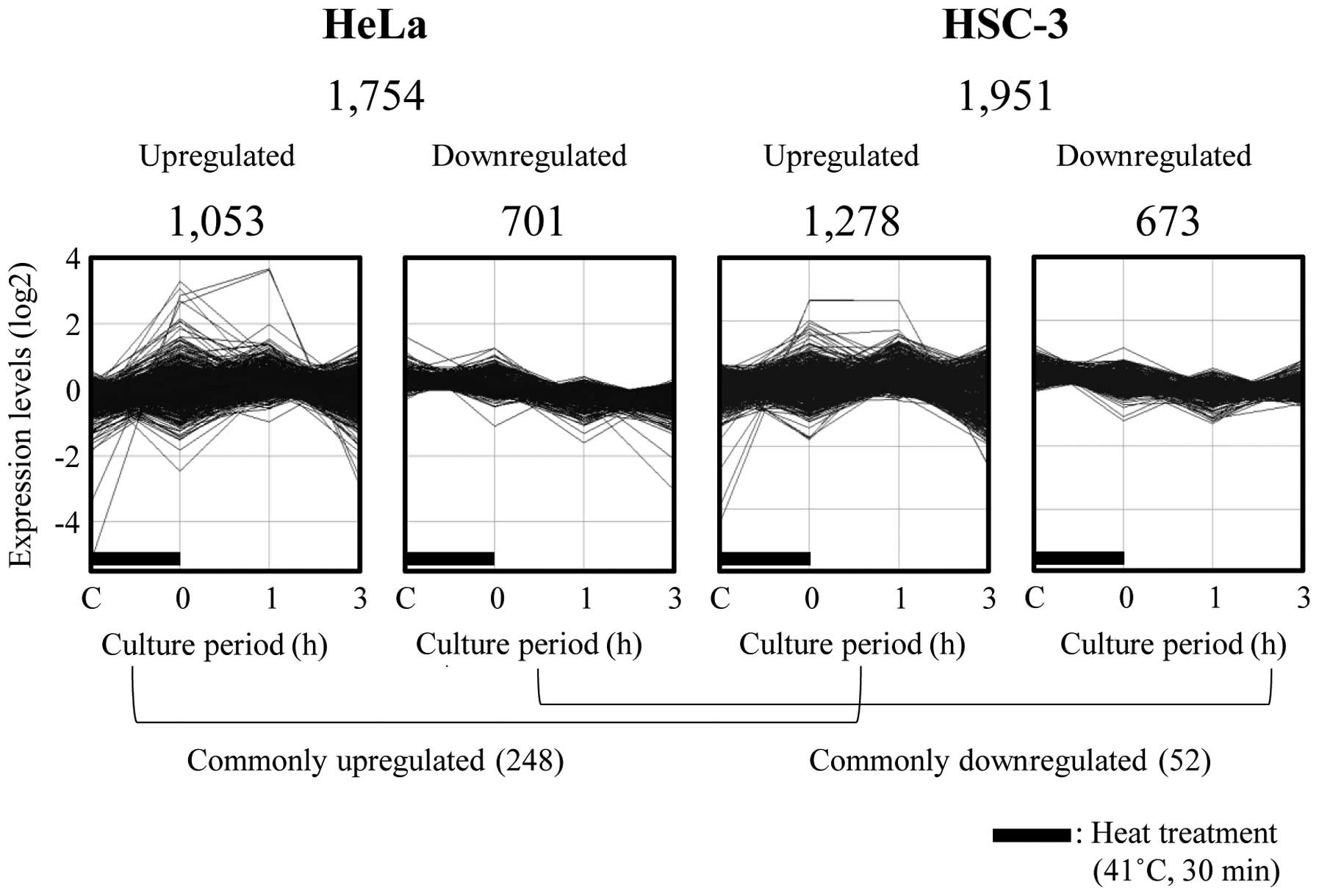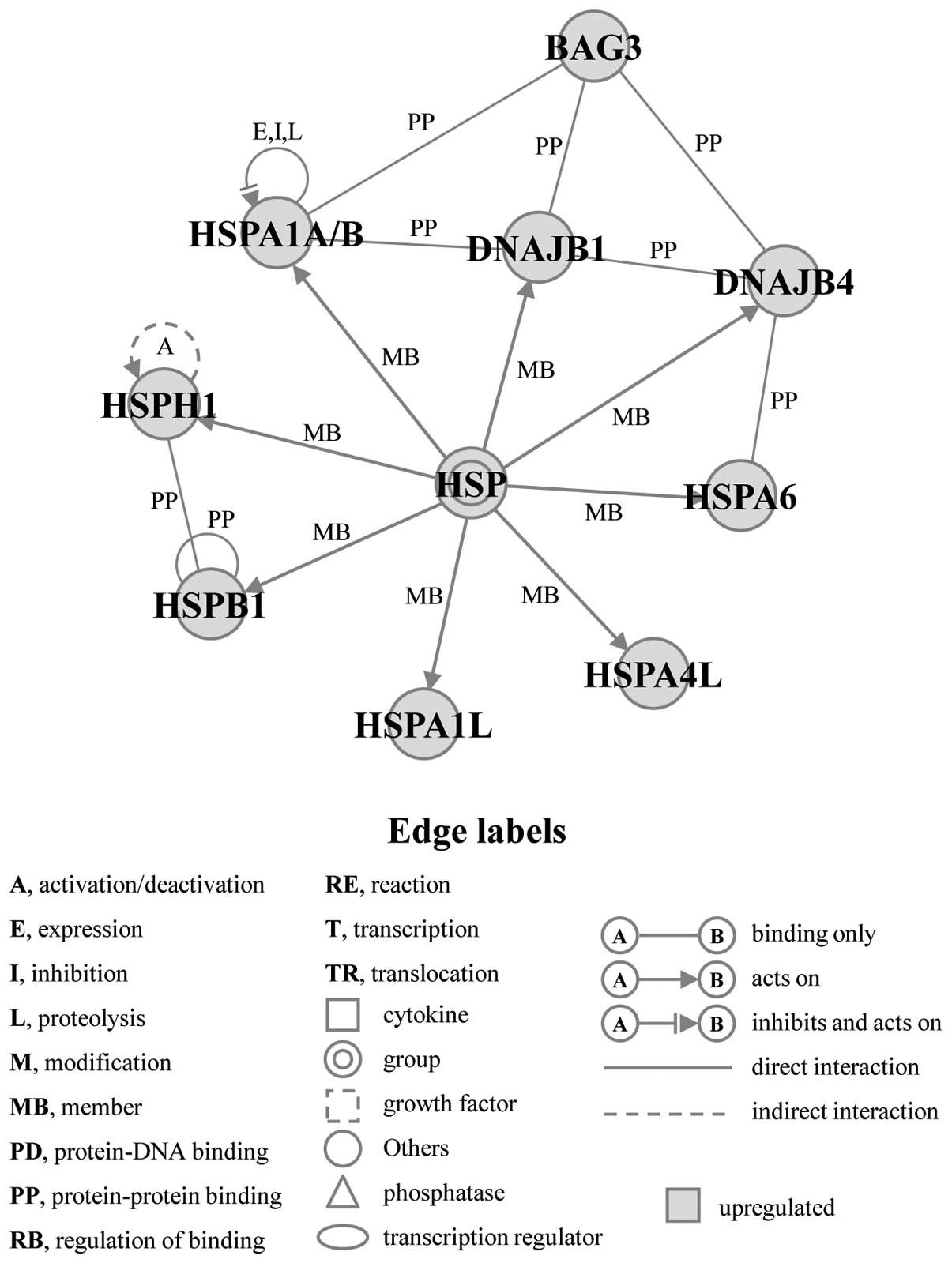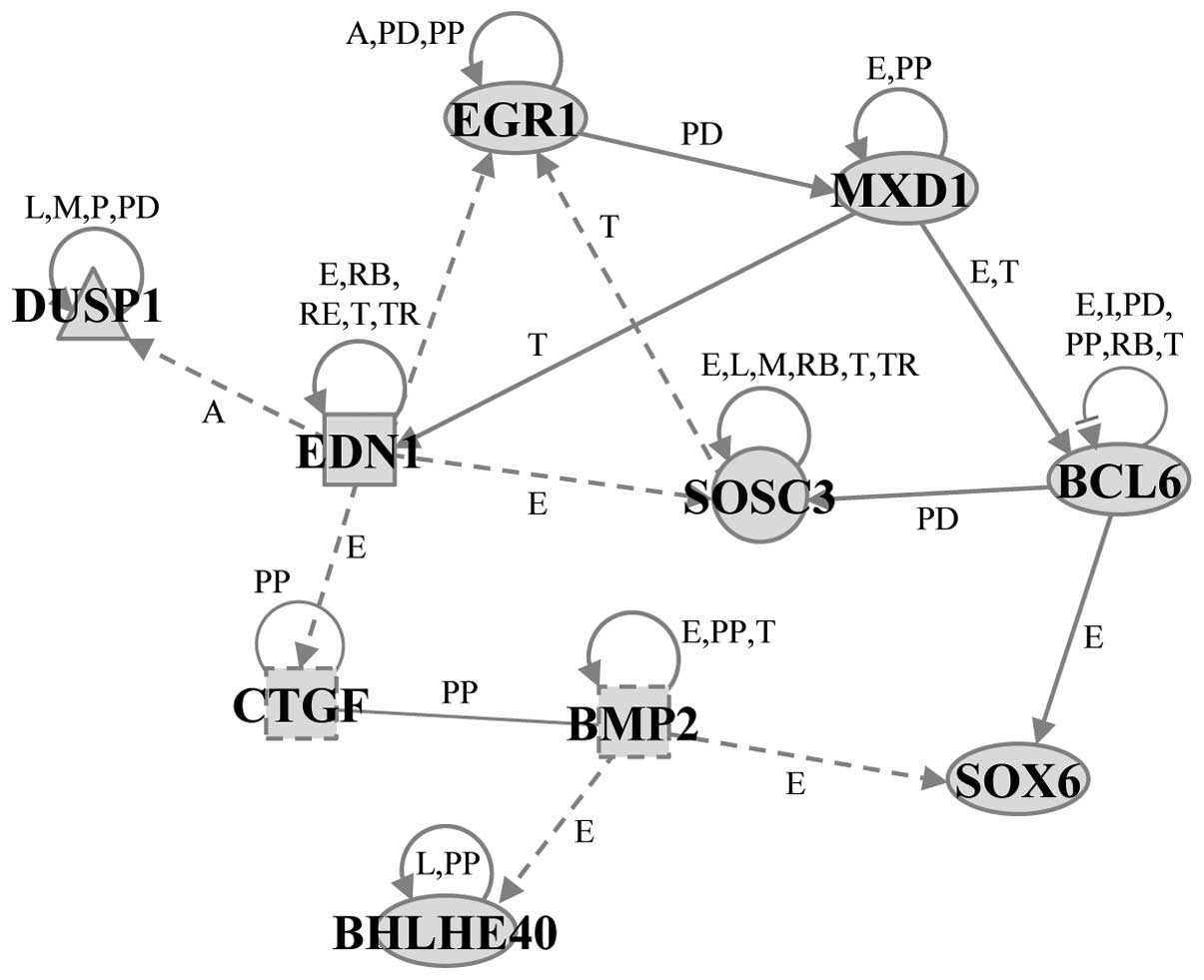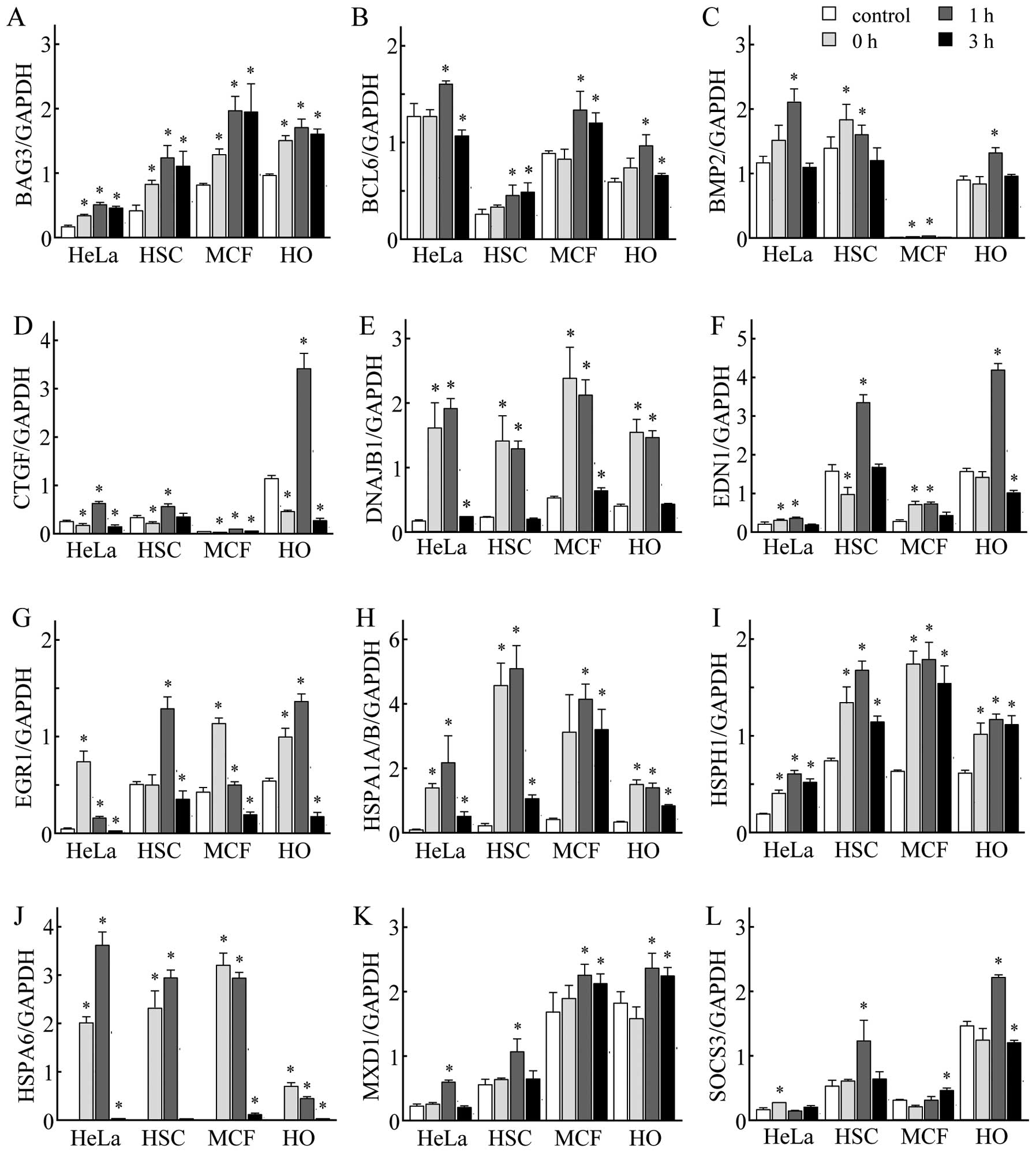|
1.
|
Hall EJ: Hyperthermia. Radiobiology for
the Radiologist. 5th edition. Hall EJ: Lippincott Williams &
Wilkins; pp. 495–520. 2000
|
|
2.
|
Dewey WC: Arrhenius relationships from the
molecule and cell to the clinic. Int J Hyperthermia. 25:3–20. 2009.
View Article : Google Scholar
|
|
3.
|
van der Zee J, González González D, van
Rhoon GC, van Dijk JD, van Putten WL and Hart AA: Comparison of
radiotherapy alone with radiotherapy plus hyperthermia in locally
advanced pelvic tumours: a prospective, randomised, multicentre
trial. Dutch Deep Hyperthermia Group Lancet. 355:1119–1125.
2000.PubMed/NCBI
|
|
4.
|
Wust P, Hildebrandt B, Sreenivasa G, et
al: Hyperthermia in combined treatment of cancer. Lancet Oncol.
3:487–497. 2002. View Article : Google Scholar : PubMed/NCBI
|
|
5.
|
Issels RD: Hyperthermia adds to
chemotherapy. Eur J Cancer. 44:2546–2554. 2008. View Article : Google Scholar : PubMed/NCBI
|
|
6.
|
Issels RD, Lindner LH, Verweij J, et al:
Neo-adjuvant chemotherapy alone or with regional hyperthermia for
localised high-risk soft-tissue sarcoma: a randomised phase 3
multicentre study. Lancet Oncol. 11:561–570. 2010. View Article : Google Scholar : PubMed/NCBI
|
|
7.
|
Westermann A, Mella O, Van Der Zee J, et
al: Long-term survival data of triple modality treatment of stage
IIB-III-IVA cervical cancer with the combination of radiotherapy,
chemotherapy and hyperthermia - an update. Int J Hyperthermia.
28:549–553. 2012. View Article : Google Scholar : PubMed/NCBI
|
|
8.
|
Beachy SH and Repasky EA: Toward
establishment of temperature thresholds for immunological impact of
heat exposure in humans. Int J Hyperthermia. 27:344–352. 2011.
View Article : Google Scholar : PubMed/NCBI
|
|
9.
|
Frey B, Weiss EM, Rubner Y, et al: Old and
new facts about hyperthermia-induced modulations of the immune
system. Int J Hyperthermia. 28:528–542. 2012. View Article : Google Scholar : PubMed/NCBI
|
|
10.
|
Lindquist S: The heat-shock response. Annu
Rev Biochem. 55:1151–1191. 1986. View Article : Google Scholar
|
|
11.
|
Richter K, Haslbeck M and Buchner J: The
heat shock response: life on the verge of death. Mol Cell.
40:253–266. 2010. View Article : Google Scholar : PubMed/NCBI
|
|
12.
|
Beere HM: ‘The stress of dying’: the role
of heat shock proteins in the regulation of apoptosis. J Cell Sci.
117:2641–2651. 2004.
|
|
13.
|
Li GC and Werb Z: Correlation between
synthesis of heat shock proteins and development of thermotolerance
in Chinese hamster fibroblasts. Proc Natl Acad Sci USA.
79:3218–3222. 1982. View Article : Google Scholar : PubMed/NCBI
|
|
14.
|
Nollen EA, Brunsting JF, Roelofsen H,
Weber LA and Kampinga HH: In vivo chaperone activity of heat shock
protein 70 and thermotolerance. Mol Cell Biol. 19:2069–2079.
1999.PubMed/NCBI
|
|
15.
|
Dinh HK, Zhao B, Schuschereba ST, Merrill
G and Bowman PD: Gene expression profiling of the response to
thermal injury in human cells. Physiol Genomics. 7:3–13.
2001.PubMed/NCBI
|
|
16.
|
Sonna LA, Gaffin SL, Pratt RE, Cullivan
ML, Angel KC and Lilly CM: Effect of acute heat shock on gene
expression by human peripheral blood mononuclear cells. J Appl
Physiol. 92:2208–2220. 2002. View Article : Google Scholar : PubMed/NCBI
|
|
17.
|
Murray JI, Whitfield ML, Trinklein ND,
Myers RM, Brown PO and Botstein D: Diverse and specific gene
expression responses to stresses in cultured human cells. Mol Biol
Cell. 15:2361–2374. 2004. View Article : Google Scholar : PubMed/NCBI
|
|
18.
|
Zhou M, Zhang A, Lin B, Liu J and Xu LX:
Study of heat shock response of human umbilical vein endothelial
cells (HUVECs) using cDNA microarray. Int J Hyperthermia.
23:225–258. 2007. View Article : Google Scholar : PubMed/NCBI
|
|
19.
|
Wong HR, Odoms K and Sakthivel B:
Divergence of canonical danger signals: the genome-level expression
patterns of human mononuclear cells subjected to heat shock or
lipopolysaccharide. BMC Immunol. 9:242008. View Article : Google Scholar
|
|
20.
|
Narita N, Noda I, Ohtsubo T, et al:
Analysis of heat-shock related gene expression in head-and-neck
cancer using cDNA arrays. Int J Radiat Oncol Biol Phys. 53:190–196.
2002. View Article : Google Scholar : PubMed/NCBI
|
|
21.
|
Kato N, Kobayashi T and Honda H: Screening
of stress enhancer based on analysis of gene expression profiles:
enhancement of hyperthermia-induced tumor necrosis by an MMP-3
inhibitor. Cancer Sci. 94:644–649. 2003. View Article : Google Scholar : PubMed/NCBI
|
|
22.
|
Borkamo ED, Dahl O, Bruland O and Fluge O:
Global gene expression analyses reveal changes in biological
processes after hyperthermia in a rat glioma model. Int J
Hyperthermia. 24:425–441. 2008. View Article : Google Scholar : PubMed/NCBI
|
|
23.
|
Laramie JM, Chung TP, Brownstein B, Stormo
GD and Cobb JP: Transcriptional profiles of human epithelial cells
in response to heat: computational evidence for novel heat shock
proteins. Shock. 29:623–630. 2008.PubMed/NCBI
|
|
24.
|
Tabuchi Y, Takasaki I, Wada S, et al:
Genes and genetic networks responsive to mild hyperthermia in human
lymphoma U937 cells. Int J Hyperthermia. 24:613–622. 2008.
View Article : Google Scholar : PubMed/NCBI
|
|
25.
|
Furusawa Y, Tabuchi Y, Wada S, Takasaki I,
Ohtsuka K and Kondo T: Identification of biological functions and
gene networks regulated by heat stress in U937 human lymphoma
cells. Int J Mol Med. 28:143–151. 2011.PubMed/NCBI
|
|
26.
|
Tabuchi Y, Wada S, Furusawa Y, Ohtsuka K
and Kondo T: Gene networks related to the cell death elicited by
hyperthermia in human oral squamous cell carcinoma HSC-3 cells. Int
J Mol Med. 29:380–386. 2012.PubMed/NCBI
|
|
27.
|
Tabuchi Y, Furusawa Y, Kariya A, Wada S,
Ohtsuka K and Kondo T: Common gene expression patterns responsive
to mild temperature hyperthermia in normal human fibroblastic
cells. Int J Hyperthermia. 29:38–50. 2013. View Article : Google Scholar : PubMed/NCBI
|
|
28.
|
Furusawa Y, Iizumi T, Fujiwara Y, et al:
Inhibition of checkpoint kinase 1 abrogates G2/M checkpoint
activation and promotes apoptosis under heat stress. Apoptosis.
17:102–112. 2012. View Article : Google Scholar : PubMed/NCBI
|
|
29.
|
Tabuchi Y, Takasaki I, Doi T, Ishii Y,
Sakai H and Kondo T: Genetic networks responsive to sodium butyrate
in colonic epithelial cells. FEBS Lett. 580:3035–3041. 2006.
View Article : Google Scholar : PubMed/NCBI
|
|
30.
|
Ahmed K, Furusawa Y, Tabuchi Y, et al:
Chemical inducers of heat shock proteins derived from medicinal
plants and cytoprotective genes response. Int J Hyperthermia.
28:1–8. 2012. View Article : Google Scholar : PubMed/NCBI
|
|
31.
|
Mariner PD, Walters RD, Espinoza CA, et
al: Human Alu RNA is a modular transacting repressor of mRNA
transcription during heat shock. Mol Cell. 29:499–509. 2008.
View Article : Google Scholar : PubMed/NCBI
|
|
32.
|
Spriggs KA, Bushell M and Willis AE:
Translational regulation of gene expression during conditions of
cell stress. Mol Cell. 40:228–237. 2010. View Article : Google Scholar : PubMed/NCBI
|
|
33.
|
Zhou H, Li SH and Li XJ: Chaperone
suppression of cellular toxicity of huntingtin is independent of
polyglutamine aggregation. J Biol Chem. 276:48417–48424.
2001.PubMed/NCBI
|
|
34.
|
Hageman J, van Waarde MA, Zylicz A,
Walerych D and Kampinga HH: The diverse members of the mammalian
HSP70 machine show distinct chaperone-like activities. Biochem J.
435:127–142. 2011. View Article : Google Scholar : PubMed/NCBI
|
|
35.
|
Lee YJ, Lee DH, Cho CK, et al: HSP25
inhibits radiation-induced apoptosis through reduction of
PKCdelta-mediated ROS production. Oncogene. 24:3715–3725. 2005.
View Article : Google Scholar : PubMed/NCBI
|
|
36.
|
Yamagishi N, Goto K, Nakagawa S, Saito Y
and Hatayama T: Hsp105 reduces the protein aggregation and
cytotoxicity by expanded-polyglutamine proteins through the
induction of Hsp70. Exp Cell Res. 316:2424–2433. 2010. View Article : Google Scholar : PubMed/NCBI
|
|
37.
|
Rosati A, Ammirante M, Gentilella A, et
al: Apoptosis inhibition in cancer cells: a novel molecular pathway
that involves BAG3 protein. Int J Biochem Cell Biol. 39:1337–1342.
2007. View Article : Google Scholar : PubMed/NCBI
|
|
38.
|
Jacobs AT and Marnett LJ: HSF1-mediated
BAG3 expression attenuates apoptosis in 4-hydroxynonenal-treated
colon cancer cells via stabilization of anti-apoptotic Bcl-2
proteins. J Biol Chem. 284:9176–9183. 2009. View Article : Google Scholar : PubMed/NCBI
|
|
39.
|
Behrends C, Sowa ME, Gygi SP and Harper
JW: Network organization of the human autophagy system. Nature.
466:68–76. 2010. View Article : Google Scholar : PubMed/NCBI
|
|
40.
|
Kumagai T, Miki T, Kikuchi M, et al: The
proto-oncogene Bc16 inhibits apoptotic cell death in
differentiation-induced mouse myogenic cells. Oncogene. 18:467–475.
1999. View Article : Google Scholar : PubMed/NCBI
|
|
41.
|
Chen S, Guttridge DC, Tang E, Shi S, Guan
K and Wang CY: Suppression of tumor necrosis factor-mediated
apoptosis by nuclear factor kappaB-independent bone morphogenetic
protein/Smad signaling. J Biol Chem. 276:39259–39263. 2001.
View Article : Google Scholar : PubMed/NCBI
|
|
42.
|
Wang MY, Chen PS, Prakash E, et al:
Connective tissue growth factor confers drug resistance in breast
cancer through concomitant up-regulation of Bcl-xL and cIAP1.
Cancer Res. 69:3482–3491. 2009. View Article : Google Scholar : PubMed/NCBI
|
|
43.
|
Raymond MN, Bole-Feysot C, Banno Y, Tanfin
Z and Robin P: Endothelin-1 inhibits apoptosis through a
sphingosine kinase 1-dependent mechanism in uterine leiomyoma ELT3
cells. Endocrinology. 147:5873–5882. 2006. View Article : Google Scholar : PubMed/NCBI
|
|
44.
|
Weisz L, Zalcenstein A, Stambolsky P, et
al: Transactivation of the EGR1 gene contributes to mutant p53 gain
of function. Cancer Res. 64:8318–8327. 2004. View Article : Google Scholar : PubMed/NCBI
|
|
45.
|
Lüscher B: Function and regulation of the
transcription factors of the Myc/Max/Mad network. Gene. 277:1–14.
2001.
|
|
46.
|
Puhr M, Santer FR, Neuwirt H, et al:
Down-regulation of suppressor of cytokine signaling-3 causes
prostate cancer cell death through activation of the extrinsic and
intrinsic apoptosis pathways. Cancer Res. 69:7375–7384. 2009.
View Article : Google Scholar : PubMed/NCBI
|
|
47.
|
Bruneau BG, Piazza LA and de Bold AJ: BNP
gene expression is specifically modulated by stretch and ET-1 in a
new model of isolated rat atria. Am J Physiol. 273:H2678–H2686.
1997.PubMed/NCBI
|
|
48.
|
Koitabashi N, Arai M, Kogure S, et al:
Increased connective tissue growth factor relative to brain
natriuretic peptide as a determinant of myocardial fibrosis.
Hypertension. 49:1120–1127. 2007. View Article : Google Scholar : PubMed/NCBI
|
|
49.
|
Chang HH, Huang YM, Wu CP, et al:
Endothelin-1 stimulates suppressor of cytokine signaling-3 gene
expression in adipocytes. Gen Comp Endocrinol. 178:450–458. 2012.
View Article : Google Scholar : PubMed/NCBI
|
|
50.
|
Virolle T, Krones-Herzig A, Baron V, De
Gregorio G, Adamson ED and Mercola D: Egr1 promotes growth and
survival of prostate cancer cells. Identification of novel Egr1
target genes. J Biol Chem. 278:11802–11810. 2003. View Article : Google Scholar : PubMed/NCBI
|
|
51.
|
Maeda S: An impact of CCN2-BMP-2 complex
upon chondrocyte biology: evoking a signalling pathway bypasses ERK
and Smads? J Biochem. 150:219–221. 2011. View Article : Google Scholar : PubMed/NCBI
|
|
52.
|
Morimoto RI: Regulation of the heat shock
transcriptional response: cross talk between a family of heat shock
factors, molecular chaperones, and negative regulators. Genes Dev.
12:3788–3796. 1998. View Article : Google Scholar
|
|
53.
|
Akerfelt M, Morimoto RI and Sistonen L:
Heat shock factors: integrators of cell stress, development and
lifespan. Nat Rev Mol Cell Biol. 11:545–555. 2010. View Article : Google Scholar : PubMed/NCBI
|
|
54.
|
Franceschelli S, Rosati A, Lerose R, De
Nicola S, Turco MC and Pascale M: Bag3 gene expression is regulated
by heat shock factor 1. J Cell Physiol. 215:575–577. 2008.
View Article : Google Scholar : PubMed/NCBI
|
|
55.
|
Rossi A, Ciafrè S, Balsamo M, Pierimarchi
P and Santoro MG: Targeting the heat shock factor 1 by RNA
interference: a potent tool to enhance hyperthermochemotherapy
efficacy in cervical cancer. Cancer Res. 66:7678–7685. 2006.
View Article : Google Scholar : PubMed/NCBI
|
|
56.
|
Nakamura Y, Fujimoto M, Hayashida N, Takii
R, Nakai A and Muto M: Silencing HSF1 by short hairpin RNA
decreases cell proliferation and enhances sensitivity to
hyperthermia in human melanoma cell lines. J Dermatol Sci.
60:187–192. 2010. View Article : Google Scholar : PubMed/NCBI
|
|
57.
|
Tabuchi Y, Furusawa Y, Wada S, Ohtsuka K
and Kondo T: Silencing heat shock transcription factor 1 using
small interfering RNA enhances mild hyperthermia and hyperthermia
sensitivity in human oral squamous cell carcinoma cells. Thermal
Med. 27:99–108. 2011. View Article : Google Scholar
|
|
58.
|
Gabai VL, Budagova KR and Sherman MY:
Increased expression of the major heat shock protein Hsp72 in human
prostate carcinoma cells is dispensable for their viability but
confers resistance to a variety of anticancer agents. Oncogene.
24:3328–3338. 2005. View Article : Google Scholar
|















